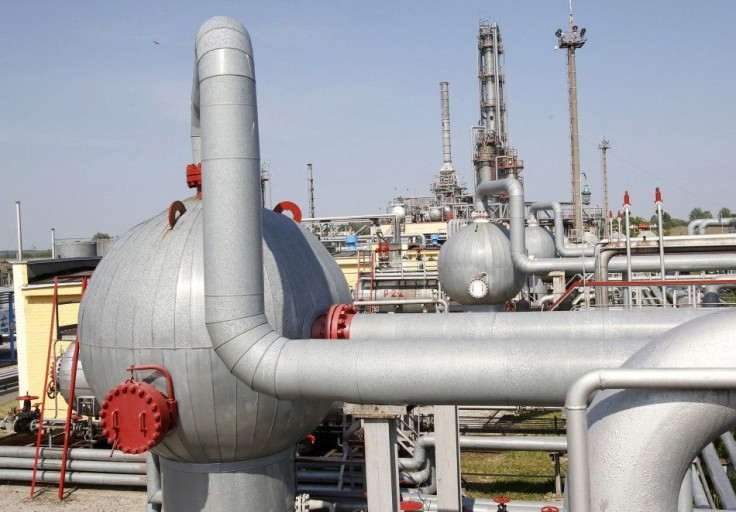New York Fracking Lawsuit Could Set Local Zoning Precedent

A Denver-based natural gas company has sued a small town in New York state over its ban on natural gas drilling, a case that may set a precedent on how local governments in the Empire State can regulate the controversial process known as fracking.
Anschutz Exploration Corporation filed a lawsuit in the New York Supreme Court on Sept. 16 against the town of Dryden, N.Y. a rural suburb of Ithaca that amended its zoning laws in August to prevent all natural gas drilling within its borders.
The lawsuit asks the state Supreme Court to invalidate Dryden's amendment, arguing that a law set by the New York Department of Environmental Conservation prevents local governments from regulating natural gas drilling, according to a statement by Thomas West, an Albany-based attorney for Anschutz Exploration.
The Department of Environmental Conservation has recently made moves to lift the state's ban on hydraulic fracturing, known as fracking. Under the proposed regulations, the New York City watershed, located north of the city, and the Syracuse watershed would be protected from drilling, as well as other aquifers throughout the state.
Fracking: Is It Safe?
Fracking involves using blasts of sand, water and chemicals to crack shale rock located deep underground to release gas and oil. Although supporters argue that fracking creates jobs and is essential to lowering the nation's dependence on foreign oil, it has also been found to contaminate local water supplies.
While state parks and other public land would also be protected under New York law, almost 85 percent of the state's Marcellus Shale -- the formation located under New York and much of the Appalachian Mountains that contains vast gas reservoirs -- would be open for drilling.
Officials in Dryden, as well as at least a dozen other local governments that have passed some sort of ban on natural gas drilling, insist that the state law only prohibits them for regulating the drilling itself, and not from saying where the process can actually take place.
Assemblywoman Barbara Lifton, an Ithaca Democrat who is well known opponent of the drilling industry, told Reuters the amendment is within Dryden's power.
If they wanted to say, 'We're going to require you to take the noise level down 50 percent,' or 'This is how you're going to dispose of waste fluid,' then you're regulating the industry, and that is clearly the prerogative of the state, she said. But saying we're going to not allow it at all is not regulating the industry itself.
While Dryden is not the first town to prohibit fracking, the industry has not resorted to legal actions against those municipalities because most are not likely drilling sites. Anschutz Exploration reportedly controls more than 22,000 acres in Dryden.
Quinipiac Poll: Both Evironmental Cost and Economic Gain Seen
A poll released this month by Quinnipiac University this month found that while half of New Yorkers believe fracking would likely have negative environmental impacts, 45 percent of voters still support natural gas drilling in the Marcellus Shade formation, saying the economic benefits outweigh the environmental concerns.
The full extent of the environmental impacts associated with hydraulic fracturing has still not been confirmed. The U.S. Environmental Protection Agency is organizing a national study of fracking in areas across Texas, Colorado, North Dakota, Louisiana and Pennsylvania that is expected to be completed by the end of 2012, although the agency said a report on the findings will not be released until 2014.
However, the study does not included sites in Sublette County and Pavillion, Wyo., where scientists began testing water samples three years ago after reports of drilling-related contamination. In 2008, researchers found traces of benzene -- a potentially toxic and flammable chemical -- in 88 water wells in Sublette County, one of the most active drilling fields in the country. In 2009, the EPA found metals, methane, hydrocarbons and traces of compounds related to fracking chemicals in residential water wells in Pavillion.
A study released by Duke University in May concluded there were dangerous levels of flammable methane gas in drinking water wells found close to natural gas wells. In the town of Dimcok, Penn., the researchers reported that some residents' tap water could be lit on fire as a result of the methane contamination.
While the researchers did not find evidence that chemicals used in hydraulic fracturing had directly contaminated the wells they tested, they said there was a clear correlation between drilling activity and the seepage of gas contaminants underground, which could pollute groundwater and infiltrate water supplies.
© Copyright IBTimes 2024. All rights reserved.





















